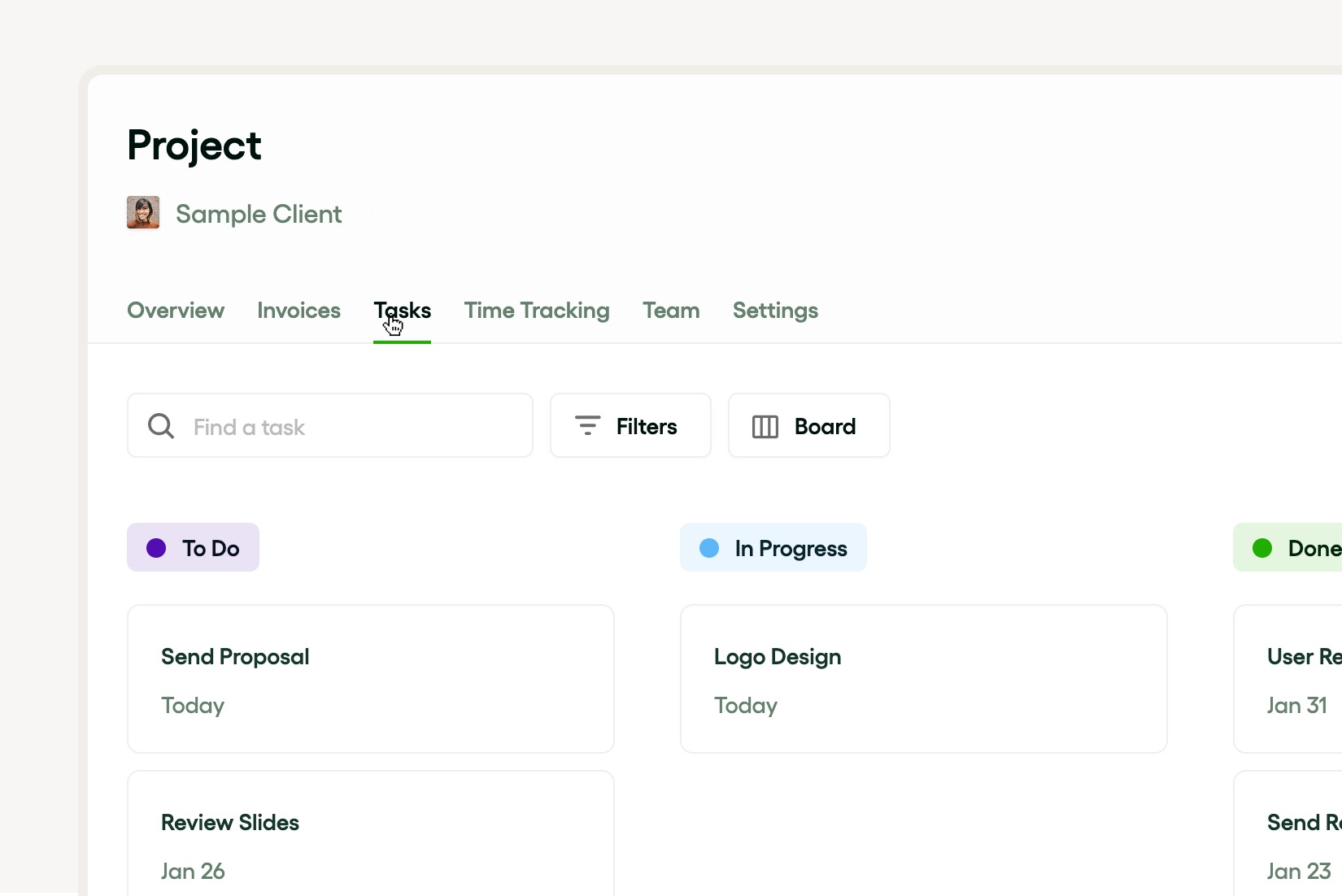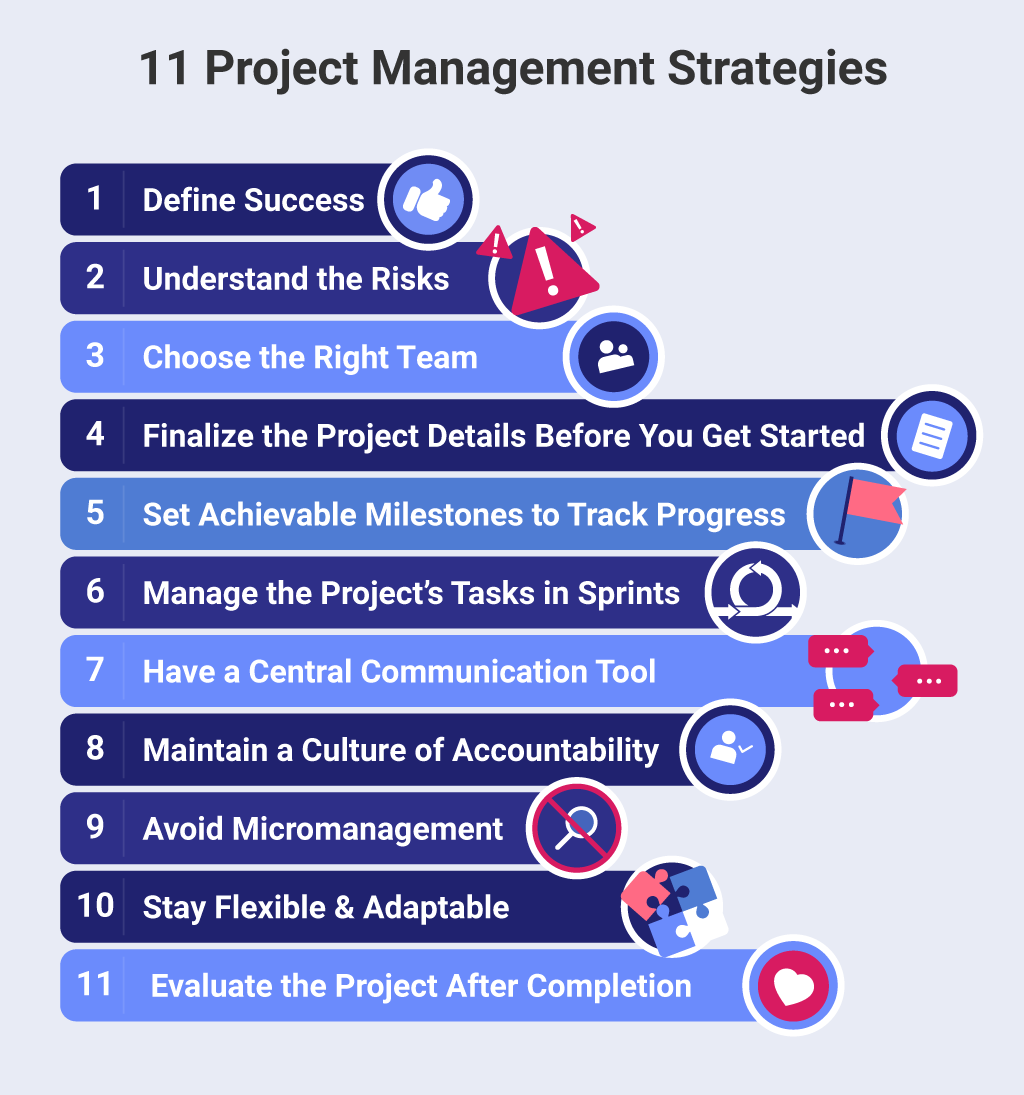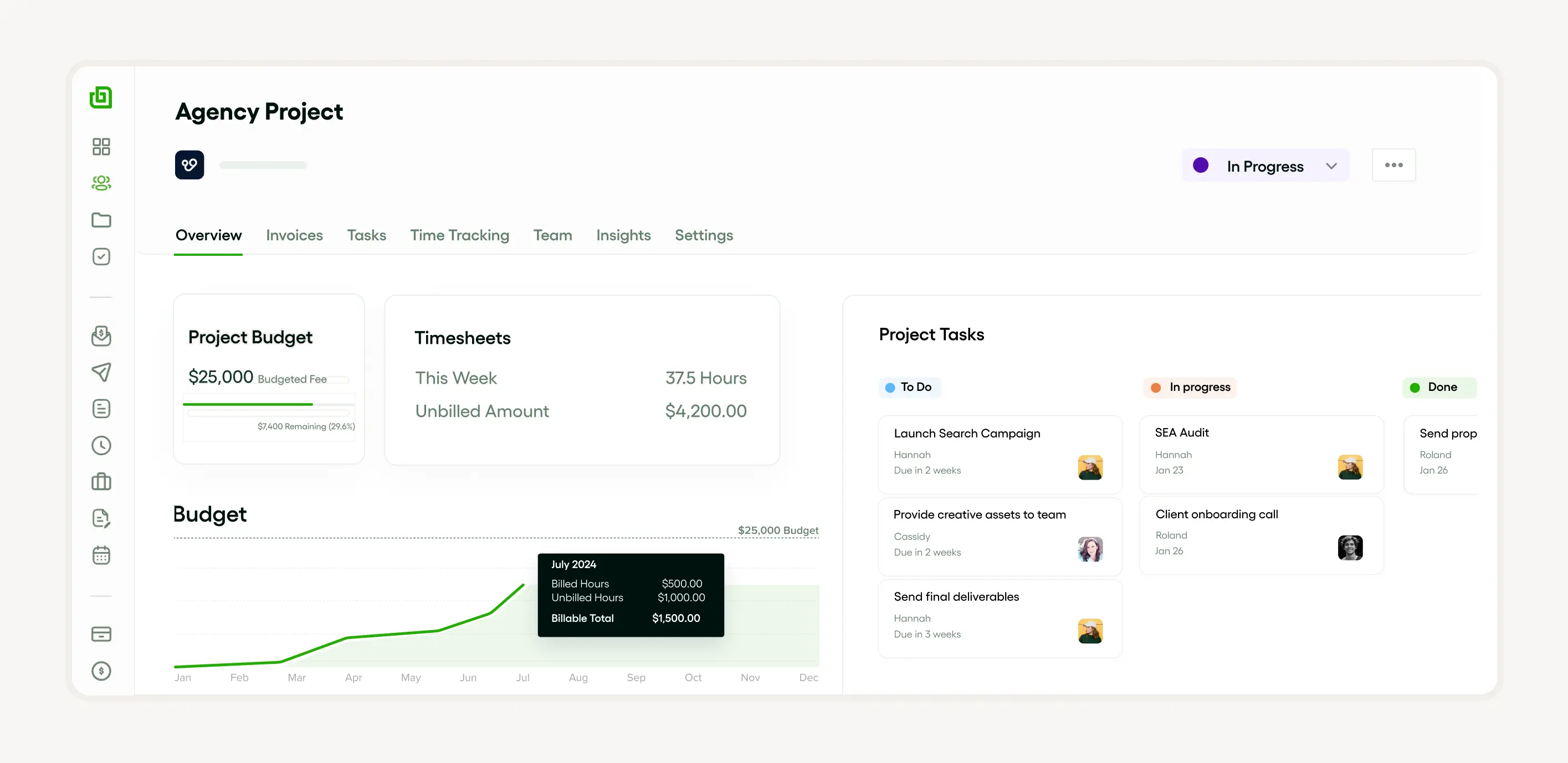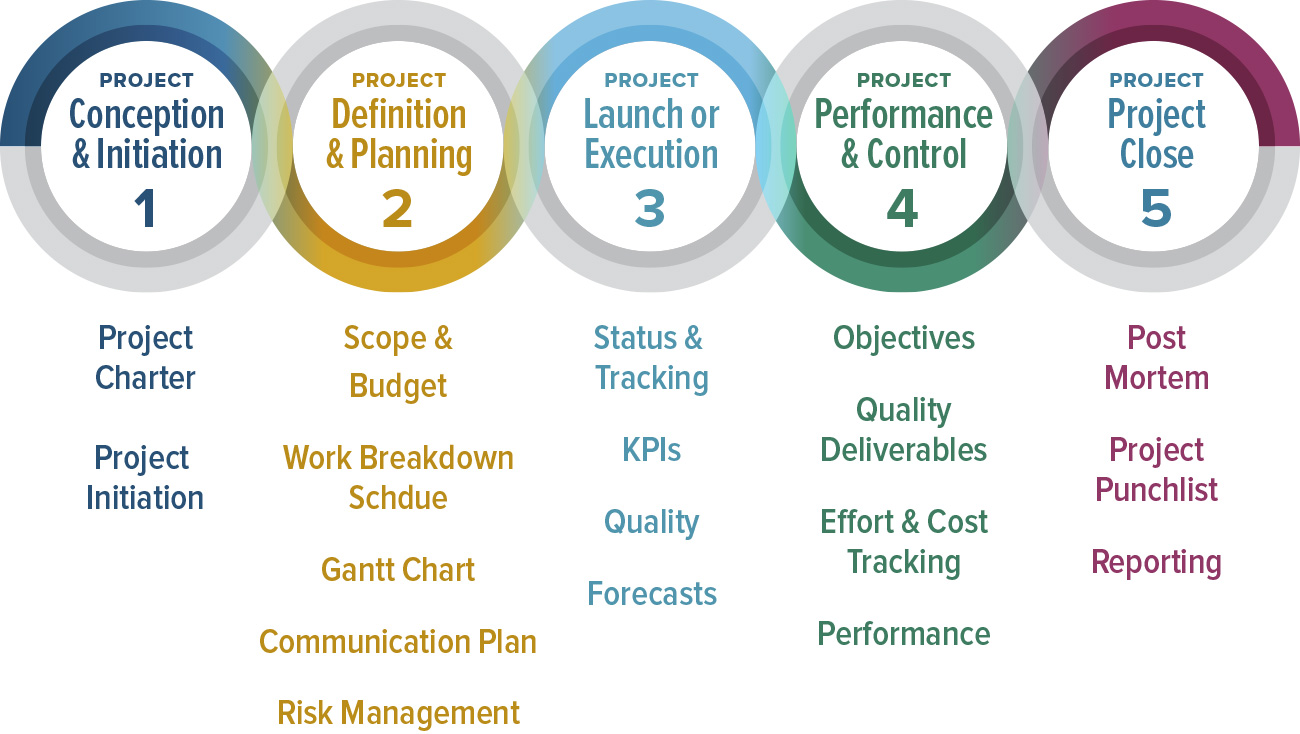Let's crack the code of team project management for small teams, starting with a sharp focus on project planning. This means setting deadlines that aren't just numbers on a calendar but milestones that everyone rallies around.
It's about keeping an eye on budgets—not just the budget for the entire year, but every penny—while ensuring everyone's in the loop, crystal clear on what’s happening in and out of the project. Streamlining collaboration isn't just a buzzword; it's about leveraging cloud-based tools that keep the team synced and the project on track without dropping the ball.
Effective management also plays the juggling act of resource management, ensuring no one's swamped or overwhelmed. Regular team discussions aren't just meetings; they're what keeps the project moving—and the team—together, keeping the transparency high and the surprises low.
Understanding the basics of team project management
Dive into the nuts and bolts of team project management where every task, every budget watch, and every deadline syncs like a well-oiled machine. It’s about crafting a workspace where tasks aren’t just assigned but embraced as part of a bigger picture.
The key? Balancing the load so no one feels the crunch more than anyone else. It’s not just about working together; it’s about working smart, ensuring the team moves as one seamless unit towards a common finish line. Master these elements, and you’re not just managing a team; you’re leading a charge towards efficiency.
Defining team project management
Team project management is the backbone of successful project execution. It involves task management, team collaboration, and project organization. These elements streamline teamwork and ensure transparency.
Procedures include setting deadlines, monitoring budgets, and balancing team capacity. Efficient resource management and project planning are key. A well-coordinated approach is vital for overall project setup and team management.
The importance of team project management in small teams
In small teams, effective project management is crucial. It aids in planning and resource management while promoting transparency throughout the project's lifecycle. Techniques include monitoring budgets, setting deadlines, and dynamically overseeing project status.
This approach enhances collaboration, maintains project organization, and balances team capacity, boosting productivity. Streamlined collaboration makes task management more effective and the overall project setup more efficient.
Benefits of using Bonsai for team project management
Using Bonsai for team project management offers numerous benefits, ensuring projects are delivered on time and within budget. Bonsai's integrated tools make it easy to organize and monitor project delivery, which your team will love. It comes with a range of features to keep your team organized and on schedule. From managing tasks and tracking time to monitoring budgets and communicating with clients.

Bonsai offers many benefits as a comprehensive project management solution:
- Bonsai allows you to create, assign, and track tasks effortlessly, ensuring everyone knows their responsibilities and deadlines.
- With built-in time tracking, you can monitor how much time is spent on each task, helping you stay on schedule and manage resources effectively.
- Set project budgets and track expenses to avoid unexpected costs. This feature helps you keep your projects financially on track.
- Easily log and review work hours with Bonsai's timesheet feature, ensuring accurate billing and payroll.
- Provide clients with a dedicated portal to view project progress, invoices, and communicate directly, enhancing transparency and client satisfaction.
- Generate detailed reports on project performance, time spent, and budget utilization to make informed decisions and improve future project planning.
- Allocate resources efficiently, ensuring that your team is neither overburdened nor underutilized.

Bonsai has all the tools you need to deliver projects on time and within budget. Its user-friendly platform makes it easy for everyone to use. Whether you're handling small tasks or large projects, Bonsai helps your team work smarter, not harder.
Overall, Bonsai streamlines project management, boosts productivity, and ensures successful project outcomes. Give it a try, and see how it transforms your team's workflow!
Key strategies for effective team project management
In managing team projects, it's crucial to consider the dynamics of the team. An effective tool to improve team dynamics is the use of Agile methodologies. By implementing these, teams can become more responsive and adaptable to changes in project demands.

Effective strategies start with a robust project setup. Detailed planning and task assignments based on resource management balance team capacity and ensure alignment.
Regularly monitor project status, from tasks to budgets. This enhances management and transparency, fostering team trust. Utilize technology to streamline collaboration and organization. Tools help lay out tasks, set deadlines, and track progress accurately.
Setting clear goals and objectives
Clear goals and objectives are vital in team project management. Precise planning aids in task management, setting deadlines, and budget monitoring.
Defined objectives enhance transparency, team alignment, and collaboration. They facilitate efficient resource management and balance team capacity. Clear goals streamline organization and improve management.
Effective communication within the team
Effective communication is key to successful management. It enhances transparency and ensures team alignment. Regular updates and meetings streamline collaboration and clarify task management.
Use tools for organization and resource management to balance capacity, monitor budgets, and set deadlines. Without open communication, planning is likely to fail. Enhanced communication fosters collaboration and leads to efficient project completion.
Delegating tasks based on skills and strengths
Delegating tasks according to skills and strengths is crucial. It ensures alignment, streamlines collaboration, and optimizes resource management.
Task delegation involves understanding strengths, assigning tasks, and balancing capacity. It's fundamental for transparency, budget monitoring, status tracking, and meeting deadlines. Effective delegation enhances organization and task management.
Encouraging team collaboration and participation
Achieving alignment is key to effective management. Balanced capacity and clear task management encourage collaboration and participation, promoting transparency and status understanding.
Efficient planning and resource management enable budget monitoring and deadline setting. Good organization supports management and participation, helping everyone understand their roles and objectives.
Implementing regular progress tracking and feedback
Regular tracking and feedback are essential. Continuous organization and task management help monitor budgets, collaboration, and status. Set deadlines to maintain alignment and balance capacity.
Feedback promotes transparency and streamlines collaboration, allowing adjustments based on insights. These strategies enhance resource management, planning, and efficient team management.
Overcoming common challenges in team project management
In striving for optimal team project management, it's crucial to understand the differences between allocated task hours and actual time spent on tasks. To better comprehend, especially if you're struggling with determining which to use when billing your clients, our billable hours versus actual hours article provides insightful information. Ultimately, transparent and accurate tracking will boost overall team productivity and ensure client satisfaction.

\Kicking off with project planning isn't just a step; it's what you need in team project management. It paves the road to smoother collaboration and sharper task handling. Throwing in a bit of resource management? Now you're working like a big corporation—keeping tabs on budgets and ensuring everyone's on the same page is crucial for transparency.
Nailing down a clear project setup from the get-go lays the groundwork for streamlined operations and team synergy. Don't forget, regular team alignments are the secret strategies for staying on track and knitting team goals tightly together.
Managing conflicts within the team
Resolving conflicts is crucial for smooth team project management. Effective project planning can address disputes arising from task management or project status. Arguments may crop up due to unclear deadlines, differing views on resource management, or collaboration hiccups.
Minimizing conflicts hinges on team alignment and project transparency. Making sure everyone understands the project setup, keeps a close eye on budgets, and balances capacity boosts productive collaboration.
Efficient conflict resolution is key to optimal project organization, driving team success.
Dealing with scope creep
Scope creep? More like a strategy leak. It's that sneaky challenge where your project's boundaries start to blur—pushing deadlines, swelling budgets, and stretching your team thin.
To prevent scope creep from getting into your projects, put project planning and task management front and center. Keep your project as transparent as glass with regular updates, get everyone marching to the beat of the same drum with aligned objectives, and make collaboration so smooth it feels like everything's on autopilot.
Ensuring timely project delivery
At the end of the day, timely project delivery is all about mastering the art of project planning. It’s like having a roadmap where every stop from budget monitoring to balancing team loads is marked clear as day.
Boost your project's backbone with solid resource management and constant updates. These moves keep your project’s pulse steady and the finish line in clear sight.
Role of project management tools in small team project management
Successful project management involves efficient allocation of resources. The longevity of a project is largely determined by the team's ability to utilize respective assets optimally; an aspect that's comprehensively explained in our resource allocation software article. Mastery of resource allocation techniques often leads to successful team project management.
Efficiently managing a team requires the use of effective tools and techniques. One of such indispensable tool is the creative agency billing software, which streamlines budgeting and billing within the team. Utilizing this tool essentially aids transparency and increases overall team productivity.
Implementing effective strategies for creative project management can significantly enhance how we approach team project management. Promoting open communication amongst team members and fostering a culture of innovative thinking are key. It bridges the gap between regular and creative task handling.
In the realm of team project management, clarity about goals and challenges is crucial. Effective communication and coordination can significantly improve the efficiency of teamwork. Therefore, setting clear project objectives is fundamental to achieving successful outcomes.
Project management tools are essential in small team project management, offering features like task management, planning, and collaboration. They help set deadlines, monitor budgets, and keep everyone in the loop on project status.
Whether you're balancing workloads or keeping projects tidy, these tools make sure no one's burning out or slacking off. Plus, they grease the wheels of collaboration, making every team discussion count.
Benefits of using project management tools
Imagine having a Swiss Army knife for team projects—that’s what project management tools are. They streamline team chats, keep tasks in check, and ensure everyone’s clear on the game plan.
These tools foster alignment through effective communication and resource management. All these elements combined enhance planning and setup, ensuring superior management and successful project completion.
Choosing the right project management tool: Bonsai, Trello, Asana, or Slack?
Decision time: Bonsai, Trello, Asana, or Slack? Each has its charm. Trello brings visual oomph with its card-based system, Asana shines with its deadline-focused structure, and Slack? It’s the glue that keeps team communication seamless.
Bonsai stands out as a great choice! When it comes to selecting the perfect project management tool for small teams. With a focus on simplicity and effectiveness, it is ideal for teams looking to stay organized without being overwhelmed by unnecessary complexities.

Bonsai provides useful task templates, time tracking capabilities, and easy integration with other tools you may already have in use. Its intuitive interface promotes collaboration and helps team members prioritize tasks effectively. Versatile tool that can boost your team's productivity and ensure your projects are completed successfully. Give it a try, and you'll see the difference it makes!
Pick the tool that fits like a glove for your team's needs. It’s not just about managing—it’s about thriving.
Best practices for small team project management

In small team project management, effective project planning is the secret sauce for success. It streamlines collaboration, sets deadlines, and keeps the project’s status in check. Here are some tips:
- Monitor budgets and balance team capacity to ensure resources are allocated efficiently.
- Emphasize task management and project organization to direct individual tasks while keeping the project’s overall flow in mind.
- Focus on team alignment and project transparency through regular reporting and meetings.
Building a positive team culture
Creating a positive team culture is key to successful team management and collaboration. It starts with clear project setup and careful planning, including setting realistic deadlines, managing resources effectively, and constantly monitoring budgets to balance team capacity. Proper task management and project organization streamline collaboration and enhance transparency.
Regular updates on the project’s status help maintain team alignment and unity. Remember, a positive team culture is built when every member feels valued, motivated, and integral to the team project management process.
Investing in team training and development
Investing in team training and development equips your staff with essential skills in resource management, project planning, and task management. With adequate training, the team can handle project management, balance team capacity, and streamline collaboration. Team development boosts alignment, leading to improved project organization and transparency.
Specific training on project setup ensures the team can monitor budgets, set deadlines, and track the project’s status. This training promotes efficient team management and bridges skill gaps, ultimately improving performance and project success.
Recognizing and rewarding team efforts
A significant aspect of optimal team project management is recognizing and rewarding team efforts. This goes beyond acknowledging the project’s status or completed deadlines. It includes appreciating the team’s ability to streamline collaboration, balance team capacity, and manage resources effectively.
Recognition can come in various forms, such as bonuses, verbal acknowledgment, or increased responsibilities, leading to better team alignment. Such recognition generates a sense of accomplishment among team members and enhances project transparency and organization. Executing these strategies can result in improved task management and more successful project planning outcomes.
Remember, a motivated team reflects positively in overall management.
Conclusion: The future of small team project management
The future of small team project management is geared towards streamlined collaboration, insightful resource management, and improved transparency. Advances in task management and project organization are set to revolutionize how teams handle their project’s status, set deadlines, monitor budgets, and balance team capacity.
By harnessing innovative solutions, teams can set up projects more effectively, ensuring better alignment and efficient management. The evolution of digital tools promises a shift towards more agile and flexible project planning.








